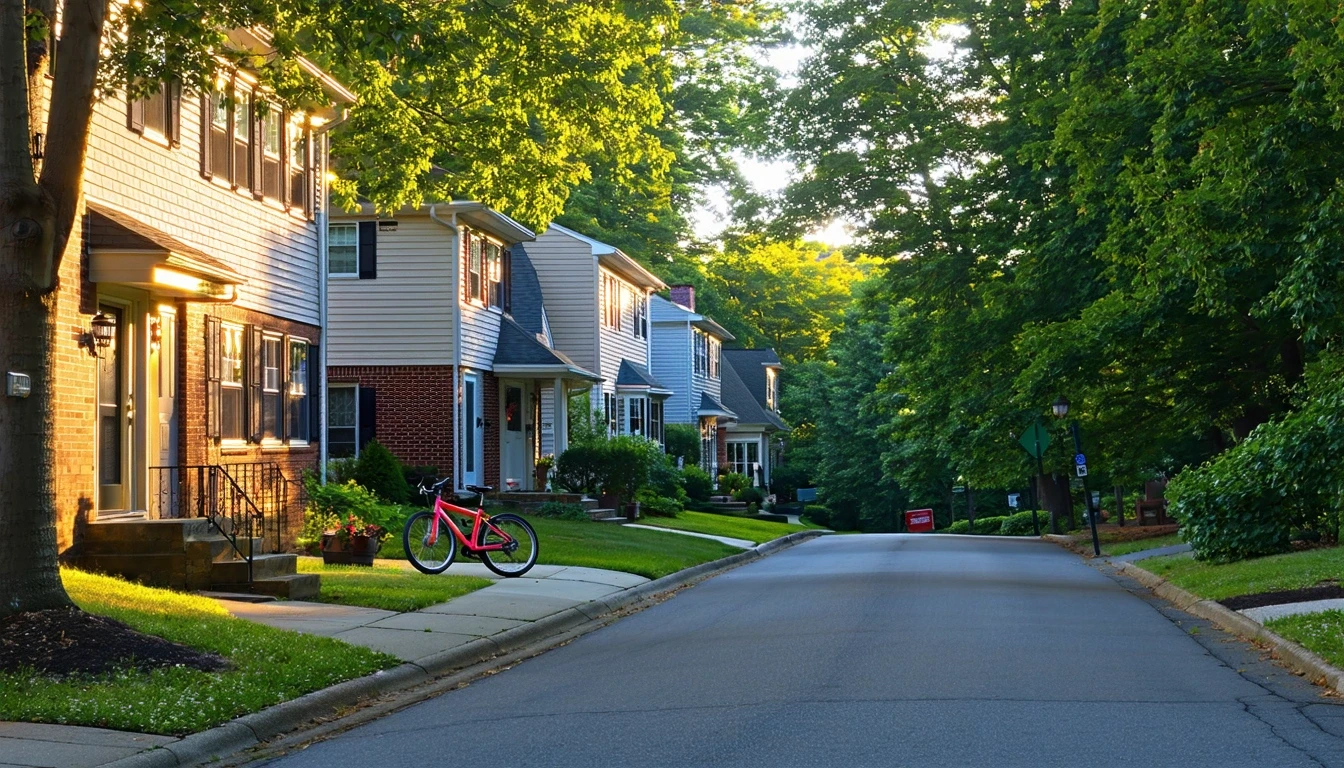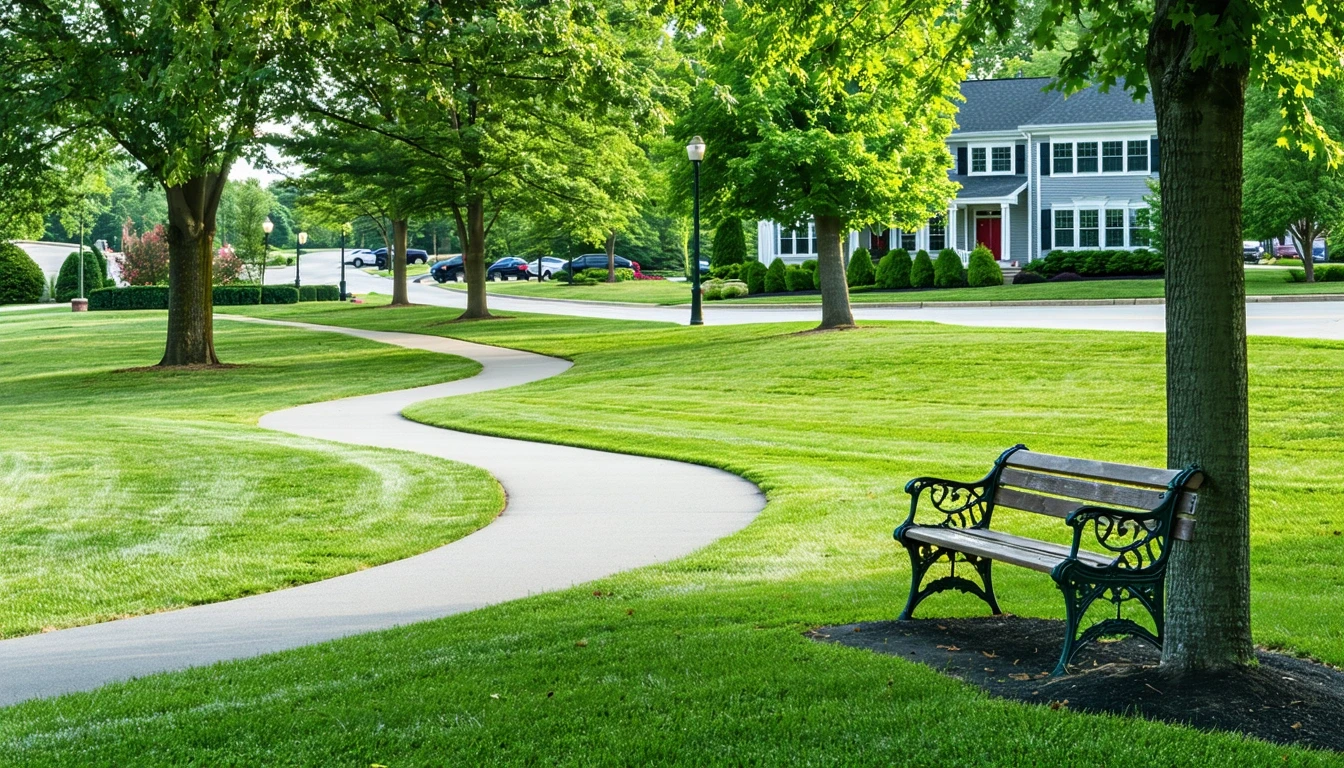
Falls Church, VA vs. Mclean, VA: Cost of Living Comparison (2025)
Falls Church and Mclean are two popular Northern Virginia suburbs just outside Washington, D.C. While only 5 miles apart, these communities offer distinct lifestyles and cost of living tradeoffs:
- Median home price: Falls Church $850K, Mclean $1.2M
- Average 2BR rent: Falls Church $2,400, Mclean $2,900
- Median household income: Falls Church $130K, Mclean $190K
- Average utility bill: Falls Church $180, Mclean $220
For relocating professionals, growing families, or anyone seeking a home in the D.C. area, choosing between Falls Church and Mclean often comes down to budget. As of 2025, the cost of living in Falls Church remains more affordable across major expense categories like housing, groceries, and utilities.
However, Mclean’s higher prices come with perks like larger homes, top-rated schools, and quick access to D.C. For some, the extra space and amenities are worth the steeper costs. To help you find the right fit, let’s dive into a detailed cost of living comparison between Falls Church and Mclean.
Housing Costs: Falls Church Has an Edge
Housing is the biggest line item in most household budgets, and Falls Church has the advantage. The median home price in Falls Church is around $850,000, while Mclean homes typically cost over $1.2 million. For a 3-bedroom single-family home, expect to pay about 30% less in Falls Church.
Renters see a similar gap. The average rent for a 2-bedroom apartment in Falls Church is $2,400 per month. In Mclean, that climbs to nearly $3,000. Larger rental homes and luxury units can easily top $4,000 monthly in both cities.
| Housing Type | Falls Church | Mclean |
|---|---|---|
| Median Home Price | $850,000 | $1,200,000 |
| 2BR Apartment Rent | $2,400 | $2,900 |
| 3BR House Rent | $3,500 | $4,200 |
For young professionals and smaller families, Falls Church’s lower housing costs can mean significant savings. A couple renting a 2-bedroom apartment could pocket over $6,000 annually compared to Mclean prices. Homebuyers with a $1M budget will find more options and square footage in Falls Church.
However, Mclean’s higher home values come with benefits. Lots are typically larger, offering more privacy and outdoor space. Many neighborhoods have community pools, tennis courts, and clubhouses included in HOA fees. For families craving room to spread out, Mclean delivers — if you can afford the higher price tag.
The Verdict: Falls Church wins on housing costs. Expect to pay 20-30% less to buy or rent compared to Mclean in 2025.
Keeping the Lights On: Utility Costs

Powering a home in Mclean tends to cost a bit more than in Falls Church. The average monthly utility bill for a typical household is around $220 in Mclean, while Falls Church residents pay closer to $180. That’s a difference of nearly $500 per year.
What accounts for the gap? In Mclean, homes are generally larger, which means more space to heat, cool, and illuminate. Older Mclean estates may also be less energy-efficient than newer construction in Falls Church. Seasonal spikes can be higher in Mclean as well, with summer A/C bills topping $300 for some homeowners.
In both cities, gas heating keeps winter utility costs lower than electric-only homes. Residents can also take advantage of energy-saving programs like Dominion Energy’s time-of-use rates to shave down bills. Switching to off-peak hours for laundry, dishes, and charging electric vehicles can add up to hundreds in annual savings.
The Verdict: Falls Church has the edge on utility costs. Expect monthly energy bills to run about 20% lower than in Mclean.
Groceries and Dining Out
Feeding a family in Falls Church or Mclean isn’t cheap, but careful shoppers can find deals. Grocery staples like milk, bread, eggs and produce cost about 5% less at Falls Church supermarkets compared to upscale chains in Mclean. For a family of four, that could mean $50-100 in monthly savings.
Eating out is pricier in both cities relative to the national average. A mid-range dinner for two might run $75-100 in Falls Church, while Mclean prices can easily top $150 with drinks. Cheaper options abound, but even casual eateries and food trucks tend to charge premium prices.
Savvy diners can trim their tabs by sticking to happy hour specials and lunch combos. Ethnic restaurants tucked in strip malls often have the best value, with generous portions of Vietnamese pho, Indian curries, or Middle Eastern kebabs for under $15.
The Verdict: Grocery and restaurant tabs are similar in both cities, with a slight edge to Falls Church. Plan for 5-10% higher food costs than the national average.
Taxes and Fees Add Up
Fairfax County collects property taxes from both Falls Church and Mclean homeowners. For 2025, the rate is $1.11 per $100 of a property’s assessed value. With median home prices of $850K in Falls Church and $1.2M in Mclean, that translates to annual tax bills of $9,435 and $13,320 respectively.
Renters don’t directly pay property taxes, but landlords often pass on a portion of those costs. It’s one reason rents tend to be higher in Mclean. Both cities also charge a 6% meal tax on restaurant bills and prepared foods, which is included in menu prices.
Car owners must pay an annual personal property tax on their vehicles as well. Falls Church charges $5 per $100 of a car’s assessed value, while Mclean uses a sliding scale based on age and original cost. For a $30,000 vehicle, that could mean a $600 difference in yearly fees.
The Verdict: Mclean residents pay more in property taxes, car registration fees, and other add-ons. Expect 10-20% higher annual tax bills compared to Falls Church.
| Monthly Expense | Falls Church | Mclean |
|---|---|---|
| Housing (3BR) | $3,500 | $4,200 |
| Utilities | $180 | $220 |
| Groceries | $800 | $850 |
| Transportation | $200 | $250 |
| Taxes | $800 | $1,100 |
| Misc. | $500 | $600 |
| Estimated Monthly Total | $5,980 | $7,220 |
Estimates reflect 2025 costs for a mid-size household (3-bedroom home) using published data and regional benchmarks. Actual expenses vary with household size, lifestyle, and neighborhood.
The table above summarizes typical monthly expenses for a family in Falls Church and Mclean. The “bottom line” difference is striking — Mclean households pay over $1,200 more on average. Housing accounts for most of the gap, but costs like utilities, groceries, and taxes also tilt in Falls Church’s favor.
Of course, these are only estimates. Frugal families in Mclean can find ways to trim expenses, while Falls Church households with luxury tastes might exceed these averages. As a general benchmark, though, expect living costs to run about 20% higher in Mclean compared to Falls Church.
Lifestyle Factors to Consider
For many, choosing between Falls Church and Mclean is as much about lifestyle as costs. Falls Church is known for its walkable downtown, with a quaint mix of local shops and eateries. Residents can stroll to the weekly farmers market, catch an indie film, or grab a craft beer without getting in a car.
Mclean offers more of a suburban retreat, with winding tree-lined streets and spacious yards. It’s a great fit for families craving a bit of breathing room, or professionals who don’t mind a short commute. The tradeoff is less walkability — most errands require driving.
Both cities boast excellent public schools, with Fairfax County being one of the top-rated districts in Virginia. Mclean’s Langley and McLean High Schools slightly edge out Falls Church’s George Mason in state rankings, but all offer strong academics, athletics, and extracurriculars.
For commuters, Falls Church has a leg up with two Metro stations (East & West Falls Church) on the Orange and Silver lines. Mclean’s station is a bit less convenient, sitting on the Silver line spur. I-66 and I-495 are easily accessible from both cities, but traffic can be brutal during rush hour.
Outdoor enthusiasts will find plenty to love in either locale. Falls Church’s Cherry Hill and Crossman Parks have playgrounds, picnic areas, and miles of wooded trails. Mclean’s Great Falls Park is a natural wonder, with stunning views of the Potomac River cascading over jagged rocks.
Frequently Asked Questions
Is Falls Church more affordable than Mclean in 2025?
Yes, Falls Church has a lower overall cost of living compared to Mclean. Housing, utilities, taxes and other essentials typically run 10-20% less in Falls Church.
How do grocery costs compare between Falls Church and Mclean?
Grocery prices are about 5% lower in Falls Church, thanks to more discount supermarkets. Restaurant tabs are similar in both cities, with Mclean prices skewing a bit higher for upscale dining.
Are property taxes higher in Mclean than in Falls Church?
Property tax rates are the same in both cities, but Mclean’s higher home values mean bigger tax bills. The typical Mclean homeowner pays 30-40% more in annual property taxes compared to Falls Church.
What is the average monthly cost of living for a family of four in Falls Church vs. Mclean?
In Falls Church, a family of four pays around $6,000 per month for housing, food, childcare, transportation, and other essentials. The same expenses in Mclean average over $7,200 monthly.
Is Falls Church considered a better value for homebuyers compared to Mclean?
Falls Church tends to offer more bang for the buck in terms of cost per square foot, yard size, and overall affordability. However, some buyers prefer Mclean’s prestige, luxury amenities, and top-tier schools — even at a premium price.
Conclusion: Falls Church Wins on Affordability, Mclean Offers Upscale Perks
For most cost-conscious families and professionals, Falls Church comes out ahead in this 2025 cost of living comparison. Average monthly expenses in Falls Church are significantly lower across major categories like housing, utilities, and taxes. Commuters will also appreciate the city’s walkable downtown and easy Metro access.
Mclean is undoubtedly pricier, but its premium prices come with perks. Homes are larger, students attend the state’s best public schools, and the vibe is undeniably high-end. For luxury buyers craving prestige and square footage, the extra costs may be worthwhile.
Ultimately, the choice between these two Northern Virginia neighbors is a personal one. By weighing the tradeoffs that matter most — from living costs to lifestyle — you can find the perfect fit for your family and budget. If a move is in your future, our guide to the best moving companies can help you get there for less.
